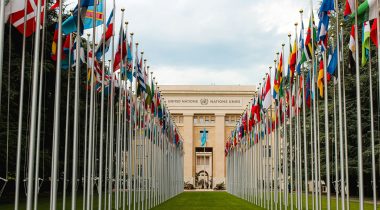
Naomi Fowler ■ Tax Haven Ireland: the Tax Justice Network podcast, November 2021

Welcome to the latest episode of the Tax Justice Network’s monthly podcast, the Taxcast. You can subscribe either by emailing naomi [at] taxjustice.net or find us on your podcast app. In this episode:
- Ireland only has 0.1% of the world’s population, but they became one of the biggest tax havens on the planet. What’s that meant for Irish people, and their road ahead? Naomi Fowler speaks with authors of a new book Tax Haven Ireland. (There’s a special deal for Taxcast listeners for the paperback or the ebook version, wherever you are in the world. Go to PLuto Books, the publisher’s website and enter the code TAX40).
- Also: we discuss the latest Tax Justice Network’s annual State of Tax Justice report. You can check out how your country threatens others, and/or how it suffers at the hands of other offender nations here: https://taxjustice.net/reports/the-state-of-tax-justice-2021/
- An automated transcript of the show is available here.
Featuring:
- Authors of Tax Haven Ireland, Kieran Allen of the School of Sociology, University College Dublin and Brian O Boyle, lecturer in economics at St Angela’s College.
- Alex Cobham of the Tax Justice Network
- Pooja Rangaprasad, Director, Policy and Advocacy, Financing for Development, Society for International Development
- Naomi Fowler of the Tax Justice Network, producer and host
We want to bring the true nature of Irish capitalism and the true nature of the Irish establishment into the light – effectively, the failure of Irish capitalism. At the centre of the whole thing was an enormous tax haven and it just became more and more clear to us, especially when we started to look at the official statistics, that there was an enormous story to be told. We need to expose what is an awful system in terms of human development.”
~ Brian O Boyle, Tax Haven Ireland author
It’s a fool’s game, I mean this is a model of development that’s promoted across the world, you know, set up an export processing zone, set up a financial services centre. But as every country’s doing that, there’s a sort of race to the bottom where you have to offer some even more tax incentives, more deregulation. And ultimately it’s a loser’s game.”
~ Kieran Allen, Tax Haven Ireland author
One of the things we hear quite often is sort of this framing of UN versus OECD, which I always find quite strange in terms of framing because the UN tax body and convention isn’t about stopping limited membership bodies from the work that they’re doing, it is simply about establishing a principled process of global negotiations on tax that is inclusive, transparent, and centred around commitments to human rights and gender equality.”
~ Pooja Rangaprasad, Director, Policy and Advocacy, Financing for Development, Society for International Development
In some ways you can read it [the State of Tax Justice report 2021] as a counsel of despair. You know, we find this year that the member countries of the OECD, the richest and most powerful countries in the world are responsible for more than three quarters of the tax losses imposed globally. And this is the body that the G20 has mandated to find the solution to the international tax problems we face. But we shouldn’t feel disheartened. We brought forward with the global movement for tax justice a set of policy proposals. One of them is to move away from the OECD and towards an intergovernmental body to set tax rules in a genuinely inclusive way under the auspices of the United Nations. It kicked the doors open to the idea. I hope the G77 feel the very strong support of the movement.”
~ Alex Cobham, Tax Justice Network
Further Reading:
- You can read more about the finance curse here: https://taxjustice.net/topics/the-finance-curse/
- The true costs of the City of London (How the City of London is making us poorer) https://taxjustice.net/2018/10/05/how-the-city-of-london-makes-us-all-poorer-infographic/
- The true costs of the US finance sector is available here: Overcharged: The High Cost of High Finance https://rooseveltinstitute.org/publications/overcharged-the-high-cost-of-high-finance/
- Did Ireland’s 12.5 percent corporate tax rate create the Celtic Tiger? https://taxjustice.net/2015/03/12/did-irelands-12-5-percent-corporate-tax-rate-create-the-celtic-tiger/
[Image credit “Colors on the River Liffy” by Let Ideas Compete is licensed under CC BY-NC-ND 2.0]
Related articles

How the UN Model Tax Treaty shapes the UN Tax Convention behind the scenes
The 2025 update of the UN Model Tax Convention
9 July 2025
One-page policy briefs: ABC policy reforms and human rights in the UN tax convention

Bad Medicine: A Clear Prescription = tax transparency
Tax justice pays dividends – fair corporate taxation grows jobs, shrinks inequality
The millionaire exodus myth
10 June 2025

The Financial Secrecy Index, a cherished tool for policy research across the globe


